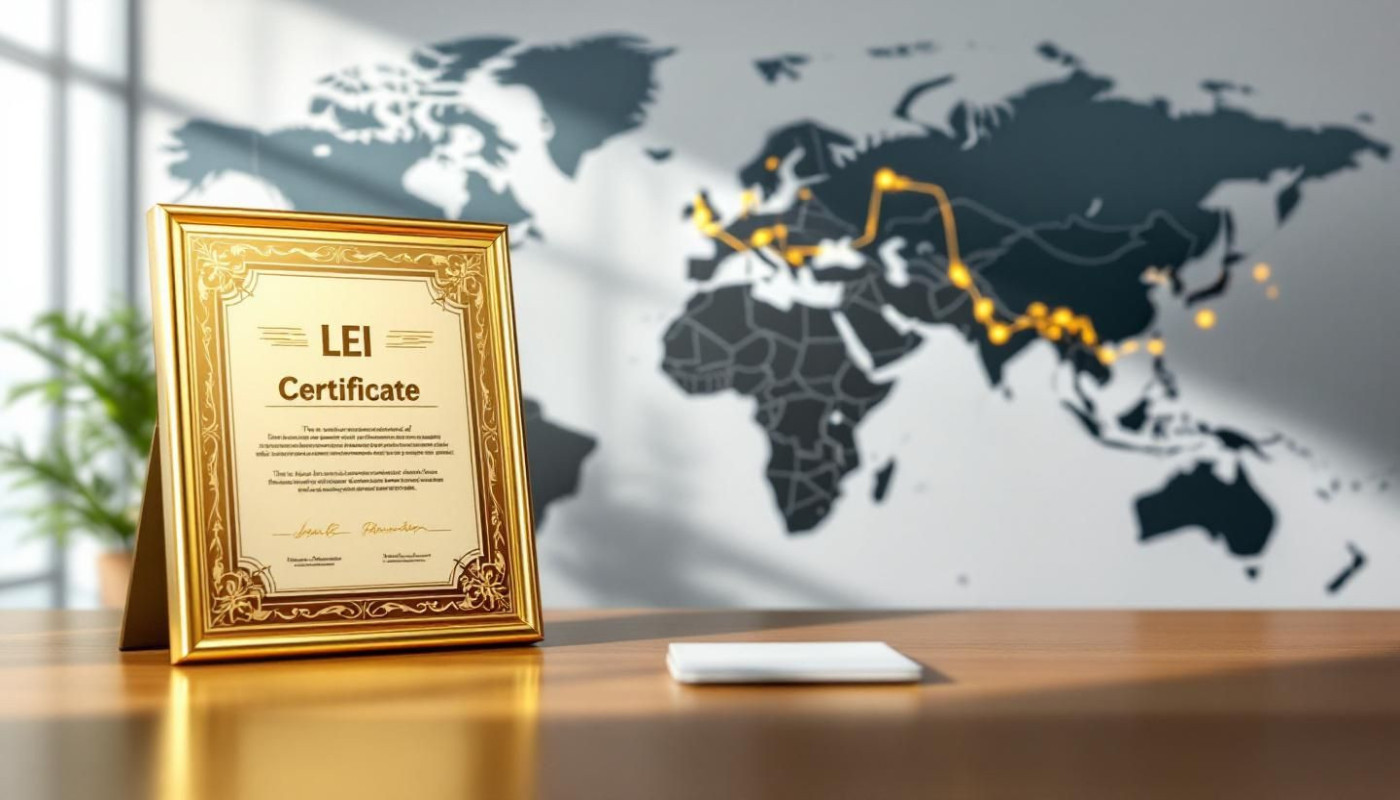Table of contents
In today's fast-paced global marketplace, establishing trust and transparency is vital for any business aiming to expand its reach. One effective way to enhance a company’s reputation is by obtaining a Legal Entity Identifier (LEI), a unique code recognized worldwide. Delve into the following sections to uncover how this simple step can significantly elevate your organization’s standing and open doors to new international opportunities.
Strengthening global trust
In the interconnected global marketplace, establishing business transparency and legitimacy is vital for fostering trust with partners, clients, and regulators. A Legal Entity Identifier (LEI) serves as a unique alphanumeric code that links essential reference information to financial market participants worldwide. By possessing an LEI, a business demonstrates it adheres to international recognition standards, making it easier for counterparties to undertake counterparty due diligence with confidence. This transparency reassures stakeholders that the business operates within legal and regulatory frameworks, significantly reducing concerns over fraud or misrepresentation. The LEI system is now recognized and mandated by financial authorities in numerous jurisdictions, underlining its role in enhancing trust and accountability across borders. Organizations can obtain and manage their LEI efficiently through specialized providers such as lei services, ensuring they remain compliant and distinguished as trustworthy entities in the ever-expanding global marketplace.
Facilitating regulatory compliance
Securing a legal entity identifier plays a vital role in regulatory compliance for international business operations. Financial regulations across multiple jurisdictions increasingly require businesses to use a legal entity identifier in regulatory reporting, ensuring transparency and accuracy in transaction records. This unique identification system enables authorities and counterparties to verify the legitimacy of entities participating in cross-border transactions, reducing the risk of fraud and enhancing overall risk management. For companies engaged in global markets, a legal entity identifier helps to streamline due diligence procedures and simplifies regulatory reporting, which significantly decreases the likelihood of delays or penalties due to incomplete or inaccurate information. The adoption of this standard not only helps businesses meet the evolving demands of financial regulations but also provides greater confidence to international partners, ultimately supporting smoother and more efficient cross-border trade.
Enabling efficient transactions
The legal entity identifier plays a pivotal role in enabling efficient transactions by providing a standardized and globally recognized system for business identification across the supply chain. In global trade environments, where numerous parties participate in complex transaction chains, the ability to instantly and accurately verify a business's identity becomes indispensable. An LEI accelerates the transaction settlement process by minimizing the time needed for counterparties to conduct due diligence, reducing the risk of errors and delays. This transparency supports seamless collaboration between suppliers, buyers, and financial institutions, ensuring that each party can trust the legitimacy of the others involved. As a result, businesses benefit from streamlined operations, enhanced compliance with international regulations, and a significant decrease in disputes or disruptions in the global supply chain, all contributing to more reliable and efficient transactions.
Enhancing data transparency
Adopting a legal entity identifier significantly enhances data transparency by providing a standardized, globally recognized reference for business data. The use of an LEI allows stakeholders and authorities to quickly verify the identity of entities involved in financial transactions, fostering greater trust through clear, accessible records. Accurate identification promotes a clearer understanding of complex corporate structures, reducing the risk of hidden ownership or opaque connections between entities. By enabling reliable data lineage, LEIs assist in tracing the origin, movement, and transformation of business data across various systems, which is critical for regulators and investors seeking assurance about an organization's legitimacy and operational practices. Enhanced data transparency through the implementation of LEIs supports stakeholder confidence, offering a clear and accessible view of business relationships and ownership, and helping firms meet international compliance standards more efficiently.
Unlocking global opportunities
Acquiring a legal entity identifier dramatically enhances market accessibility, allowing businesses to seamlessly pursue global opportunities. With an LEI, organizations establish transparency and credibility, two qualities vital for successful market entry in unfamiliar territories. It streamlines compliance with international regulations and satisfies due diligence requirements demanded by global financial institutions and partners. As a result, companies signal their legitimacy and reliability, which helps attract international partners seeking trustworthy collaborators for cross-border business ventures. The LEI acts as a universal reference, removing ambiguity about a company's identity and reducing the risk for those engaging in cross-jurisdictional transactions. This unique identifier is now essential for enterprises aiming for international expansion and wishing to participate in a diverse, interconnected marketplace, as it lays the groundwork for smoother transactions, increased partnerships, and expedited entry into emerging markets.
Similar articles


